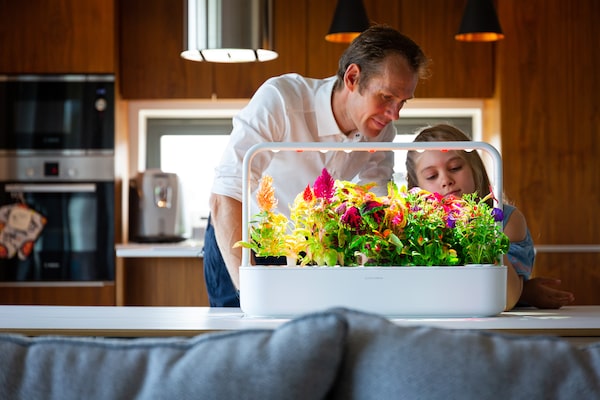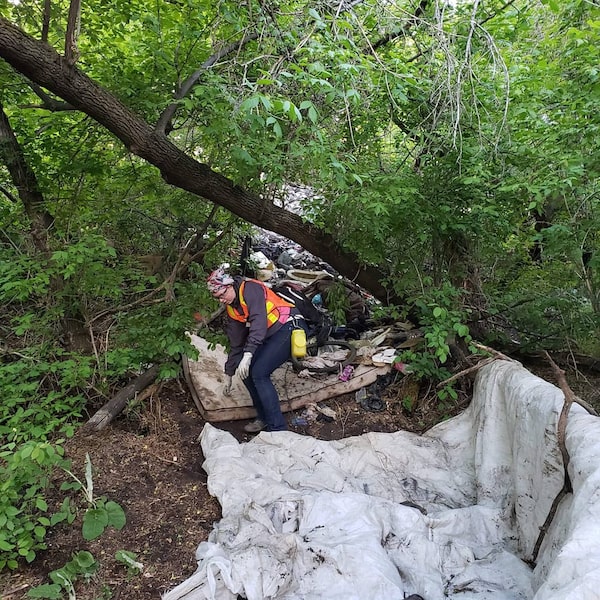Good afternoon, and welcome to Globe Climate, a newsletter about climate change, environment and resources in Canada.
Luckily, officials say that strong winds didn’t add fuel to a wildfire in Penticton, B.C. these past few days. An evacuation alert in the city for more than 3,600 properties remained in effect as of this weekend. The department has allowed 110 firefighters to return home to their respective communities after battling the blaze.
Just last year, two large-scale fires were found to be connected to climate change in two separate research papers published by scientists with Environment and Climate Change Canada.
“We are seeing climate change in action,” says University of Alberta wildland fire professor Mike Flannigan. “The Fort McMurray fire was 1.5 to six times more likely because of climate change. The 2017 record-breaking B.C. fire season was seven to 11 times more likely because of climate change.”
The year before that, Christian Messier of the Université du Québec à Montréal told The Globe that “all simulation models predict that fire will increase due to climate change.”
Now, let’s catch you up on other news.
The 1,400 hectare Christie Mountain wildfire encroaches on the neighbourhood of Heritage Hills between Penticton and Okanagan Falls above Skaha Lake as helicopters douse the flames with lake water Wednesday morning.Lucas Oleniuk/The Globe and Mail
Noteworthy reporting this week:
- Renewable energy stocks have performed superbly under the tenure of coal-loving U.S. President Donald Trump. Now, some observers believe a Joe Biden administration will give the green sector – including several Canadian stocks – its next big push. Dividend-rich Canadian and U.S. renewable energy stocks: Good under Trump, better under Biden?
- In this era of the smart home, it’s no surprise that gardeners – particularly those who live without a backyard or even a balcony – are cultivating a digital green thumb. Self-watering and monitoring smart gardens are a boon for those living in small spaces.

While they may not be as therapeutic as outdoor gardens, self-watering and monitoring smart gardens are a boon for those living in small spaces. The Click & Grow smart gardening system, a self-growing indoor gardening container.Adam Illingworth/Handout
A deeper dive
Solving the economy: Liberals say Canada needs a green, inclusive, equitable recovery. Can Chrystia Freeland deliver?
The recovery will be equitable. The recovery will be inclusive. The recovery will focus on jobs and growth. The recovery will be green.
I’ve reversed the flow there from how Chrystia Freeland phrased things in her first news conference as Canada’s Finance Minister last week. But why does what the Finance Minister says about the environment matter?
Because governments are about determining priorities and the Finance Minister is about determining spending priorities. If Canada’s economic recovery is to be “green,” Ms. Freeland will play a big role in determining how that spending gets allocated.
It’s also important because, as of now, Ms. Freeland and Prime Minister Justin Trudeau are setting expectations that they’ll aggressively pursue all of these policy goals – and that, as Adam Radwanski and Patrick Brethour report, is a cause for encouragement among some observers and mounting concern among others.
Canada remains committed to achieving net-zero emissions by 2050, but while the rest of the world is making big bets on stimulus packages to repair shattered economies, this country is still thinking about what direction is best. To be sure, as Adam has already reported, there are ideas on the table, but they have yet to be given anything close to a green light.
It’s also worth considering that earlier in the pandemic, Ms. Freeland appeared to be concerned that a focus on emissions reduction could cause a backlash among Canadians, particularly in Alberta, with more immediate economic needs.
Still, there are early signs that the kind of team effort Ms. Freeland brought to NAFTA negotiations will be brought to bear on climate change, such as the early promise from Ottawa and Alberta to pursue new hydrogen strategies.
A green recovery will require that kind of policy commitment – and a whole lot of money on the table.
Deputy Prime Minister and Finance Minister Chrystia Freeland speaks to reporters next to Canadian Prime Minister Justin Trudeau on Parliament Hill in Ottawa, Ontario, Canada August 18, 2020.PATRICK DOYLE/Reuters
What else you missed
New spending on Bighorn wilderness area is inadequate, opposition says: Critics say that more than $1-million to upgrade facilities in the Alberta’s west-central backcountry is inadequate to cope with tens of thousands of random campers in the Bighorn region every weekend, who often leave garbage, damaged sites and human waste behind.
Calgary’s Village Brewery hopes to overcome “yuck factor” with beer made with waste water: The goal was to show that dirty water – even that flushed from toilets in a major city – can be made safe to drink while helping conserve the globe’s dwindling potable water supply.
These Canadian companies are poised to benefit from Joe Biden’s US$2-trillion green energy plan: Daily roundup of research and analysis from The Globe and Mail’s market strategist Scott Barlow.
Federal government to join assessment of Teck coal mine expansion in B.C.: Environment Minister Jonathan Wilkinson had already reversed an earlier ruling and announced that Ottawa would take part in a review of the proposed Vista coal project in Alberta. Several other companies have disclosed plans to mine coal in the province.
Canadian miner Midas Gold sues U.S. over Idaho water pollution: British Columbia-based Midas Gold filed the lawsuit last week Tuesday. Midas Gold, which has yet to do any mining in the area but has claims, is itself being sued by the Nez Perce Tribe over the same pollution caused by past mining companies.

Two O'Clock Ridge near Cline, Alta., is shown in this undated handout photo. Alberta's new environment minister says he will scrap the previous government's proposed plan for protected areas in western Alberta.Adam Linnard/The Canadian Press
Opinion and analysis
It’s clear as ice: The Arctic is unravelling
Glenn McGillivray: “We can say with strong confidence that loss of sea ice at the North Pole is beginning to affect the weather where large numbers of people reside. So we must understand, the Arctic is not the canary in the coal mine – it is the coal mine.”
It doesn’t matter who leads the Conservatives – not as much as what the party does next
John Ibbitson: “A well-run campaign and a thoughtful platform based on a return to fiscal responsibility, private-sector job creation, support for elder care as well as child care, continued robust immigration – with a greater emphasis on economic-class over family-class immigrants – help for the agriculture and natural resource sector – especially for oil and gas – improved education and entrepreneurial opportunities for First Nations, help for car commuters, and promises to co-operate with rather than confront provinces in fighting climate change, could go down well.”
Here’s what readers had to say
Pulled from one of this week’s letters to the editor, we curated some comments around environment
Roderick Benns from Lindsay, Ont.: The nitty-gritty of finance can be handled by talented bureaucrats. I would much rather have my Finance Minister get the big picture and, for me, Chrystia Freeland’s writings on inequality qualify.
With a Prime Minister open to thinking big and a Finance Minister who understands the impact of inequality on Canadian life, we could see the makings of a truly progressive legacy. Working with the NDP, this government has a chance to innovate with a green economy, basic income, pharma care, affordable housing and more publicly owned enterprises, so that profit stays with the people, not corporations.
Don Chapman from Surrey, B.C.: Re The Cash Bonfire At B.C.‘s Site C (Aug. 17): In the 1970s, I lived in the Peace River area of British Columbia when Site C was first proposed. I find The Globe’s editorial is right on the money.
However, while inferred in relation to mounting costs, what should not be forgotten are the engineering questions of whether the planned dam will even be technically viable. These are issues of dam stability, slumping reservoir banks and accumulation of sediment. Location continues to be an engineering nightmare; two earlier dams upriver are in completely different geography.
I hope there is the political courage to shut down construction – it always has been a dam too far.
Also, a comment sent in to Globe Climate from Bob Halliday:
“I wonder if it’s time for Canada to state that, as a matter of policy, it will no longer permit the export of thermal coal. This is particularly important given recent policy changes in Alberta. As well, the election of a Biden government in the U.S. would mean that Canada wouldn’t have to cope with a Trump tantrum over the matter as U.S. coal is exported through Canada because Pacific coast states won’t allow exports from U.S. soil.”
Making waves
Each week The Globe will profile a young person making a difference in Canada. This week we’re highlighting the work of Mac McAlear cleaning cities.

Mac McAlearHandout
My name is Hunter McAlear – Mac for short. I’m a second-year student at the University of Saskatchewan in the College of Agriculture, majoring in animal sciences. I wanted to do something to help my community during the COVID-19 lockdowns. That’s how I became the CEO of Better Environments Inc, Meilleur Environnements Inc. We are an environmental not-for-profit organization that cleans up garbage in our established cities. Currently, they are Edmonton, Calgary, Ottawa and Toronto. The goal is to clean all our cities to help not only our citizens but, by extension, the environment surrounding our cities. To date, we have run more than 20 cleaning events across Canada, and cleaned more than 360 square kilometres in Edmonton alone. Even with lofty goals, I am genuinely encouraged and impressed with the exponential growth we’ve had in the last three months. Never could I have imagined just how many people care and actively want to help their community and environment. The biggest thing I have learned through all of this is you never know what you are capable of until you try. A great summation of the drive to make our world a better place: “Help will always be given to those who ask for it.”(Dumbledore from Harry Potter)
Do you know an engaged young person? Someone who represents the real engines pursuing change in the country? Email us at GlobeClimate@globeandmail.com to tell us about them.
Photo of the week

Assistant to the territorial director of the National Forests Office (ONF) Rodolphe Pierrat examines a spruce tree on August 18, 2020 at Ban-Sur-Meurthe-Clefcy northeastern France. - Due to the drought in France and Europe this summer, the forests switched to a 'survival mode', according to Sylvain Delzon, an ecologist biologist at the National Research Institute for Agriculture, Food and the Environment (INRAE) in Bordeaux and doctor in ecophysiology.JEAN-CHRISTOPHE VERHAEGEN/AFP/Getty Images
Guides and Explainers
- We’ve rounded up our reporters’ content to help you learn about sustainable ways to live life at home, travel, invest and generally to learn about our species at risk.
- If you like to read, here are books to help the environmentalist in you grow, as well as a downloadable e-book of Micro skills - Little Steps to Big Change.
Catch up on Globe Climate
- Big oil patch companies have a big reason to think more green
- Collapse of Canadian ice shelf a sign of a tipping point in the Arctic
- Alberta is having a moment with Europe in addressing climate risks
- Without Alberta, Canada can’t hit its goal of net-zero emissions by 2050, Natural Resources Minster says
We want to hear from you. Email us: GlobeClimate@globeandmail.com. Do you know someone who needs this newsletter? Send them to our Newsletters page.
 Sierra Bein
Sierra Bein